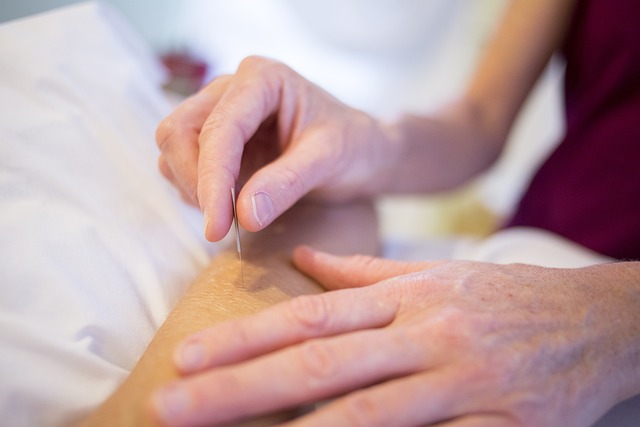You’ve heard about acupuncture. Maybe a friend swears it helped their back pain, or your doctor suggested it for stress. But what is it really like to get tiny needles inserted into your skin and why would anyone want that?
If you’re curious but unsure, you’re not alone. In this acupuncture beginner guide, we’ll walk through what to expect, how it works, and why millions of people around the world turn to acupuncture as a trusted tool for holistic wellness.
What Is Acupuncture?
Acupuncture is one of the foundational practices of Traditional Chinese Medicine (TCM) a system of healing that has been used for over 2,000 years. At its core, acupuncture is the insertion of very fine needles into specific points on the body to restore balance and stimulate the body’s natural healing processes.
According to TCM philosophy, health is a state of harmonious energy flow through channels called meridians. When this energy called Qi (pronounced “chee”) is blocked, stagnant, or unbalanced, it can lead to physical or emotional discomfort. Acupuncture aims to unblock and balance this energy to support optimal health.
What Happens During an Acupuncture Session?
If you’re new to acupuncture, your first session might surprise you in a good way.
Here’s what typically happens
-
Initial Consultation
Your acupuncturist will ask questions about your symptoms, sleep, digestion, emotional health, and lifestyle. They may also look at your tongue and check your pulse, which are diagnostic tools in TCM. -
Needle Insertion
You’ll lie on a comfortable table, and the practitioner will gently insert very thin, sterile needles into specific acupuncture points. Most people feel little to no pain some describe a tingling, dull ache, or warmth. -
Relaxation Period
Once the needles are in place (usually 10 – 20 of them), you’ll rest quietly for about 20 – 30 minutes. Many clients find this deeply relaxing some even fall asleep. -
Needle Removal and Aftercare
The acupuncturist will remove the needles and may offer suggestions for herbs, lifestyle changes, or follow-up treatments.
Does Acupuncture Hurt?
A common fear is that acupuncture will be painful but most are surprised at how gentle it is. The needles are extremely thin about the width of a human hair. In fact, acupuncture is so subtle that some people don’t feel the insertion at all.
If you do feel something, it’s often a brief tingle, heaviness, or a mild electric sensation signs that Qi is being activated.
What Can Acupuncture Help With?
Research shows acupuncture can be effective for a wide range of conditions, including
-
Chronic pain (back, neck, knee, arthritis)
-
Headaches and migraines
-
Stress, anxiety, and depression
-
Insomnia and fatigue
-
Digestive issues (IBS, bloating, nausea)
-
Menstrual and fertility support
-
Immune boosting and allergy relief
-
Post-surgical recovery
More hospitals and integrative medicine clinics are incorporating acupuncture as a complementary treatment due to its safety and broad benefits.
How Many Sessions Do You Need?
Acupuncture is not usually a one-time treatment. While some feel immediate relief, chronic or complex issues may require a series of sessions.
-
Acute issues 3 – 6 sessions may be enough
-
Chronic conditions 6 – 12+ sessions, with regular maintenance
Your acupuncturist will work with you to develop a treatment plan based on your health goals and responses.
Safety and Side Effects
Acupuncture is very safe when performed by a licensed, trained professional. Side effects are rare but may include
-
Mild bruising or soreness at needle sites
-
Temporary fatigue
-
Emotional release during or after treatment
Be sure to see a certified practitioner who uses single-use, sterile needles and follows proper hygiene protocols.
Beyond the Needles Holistic Approach of TCM
Acupuncture is just one piece of the Traditional Chinese Medicine puzzle. Other therapies your practitioner may recommend include
-
Herbal medicine
-
Cupping therapy
-
Moxibustion (warming herbs near the skin)
-
Dietary and lifestyle guidance
-
Qigong or Tai Chi (gentle energy exercises)
TCM views the body as an interconnected system, aiming to treat the root causes of illness, not just the symptoms.
Tips for Your First Visit
-
Eat lightly before your session (don’t go on an empty stomach)
-
Wear loose, comfortable clothing
-
Be open with your practitioner share any symptoms or concerns
-
Hydrate and rest afterward your body will be processing the energetic shift
Acupuncture as a Path to Balance
Acupuncture isn’t just about needles it’s about restoring balance, promoting healing, and reconnecting with your body’s natural intelligence. Whether you’re dealing with chronic pain, emotional stress, or simply seeking a deeper level of wellness, acupuncture offers a time-tested, gentle approach to care.
For beginners, the experience is often surprisingly soothing and the results, when consistent, can be life-changing.


